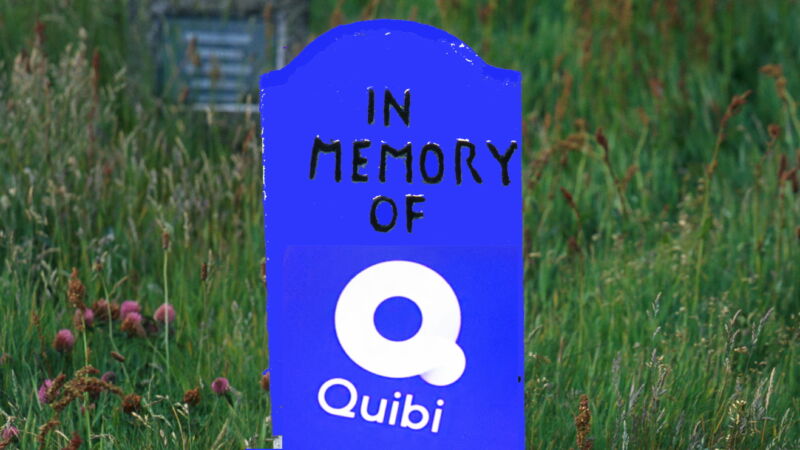
Quibi, the video-streaming service designed to revolve around smartphone screens, is no more, according to The Wall Street Journal.
After launching only in April this year, with a $1.75 billion infusion of cash and the leadership of former NBC bigwig Jeffrey Katzenberg, the service is ending as part of the closure of its holding company, Quibi Holdings LLC, according to “people familiar with the matter,” the WSJ says. The news was delivered directly by Katzenberg to the LLC’s investors on Wednesday, according to the report.
The writing appeared to be on the wall as soon as Quibi’s primary sales pitch—quick-burst videos designed to attract the average on-the-go smartphone user—fell apart all over the United States in the wake of coronavirus-related shutdowns. (People just weren’t watching videos on their phones as much this year while, say, commuting on crowded trains or going to and from schools and universities.) This issue was compounded by Quibi’s surprising lack of home-friendly ways to watch its content, with zero major launches on set-top platforms like Roku, Apple TV, or Amazon Fire TV.
This fact wasn’t made clear to critics ahead of Quibi’s launch, which is the primary reason why I had anything nice to say about it when the service went live. As I wrote in April:
Quibi’s preview slate left me entertained enough to recommend installing the service’s generous 90-day free trial at launch, even if Murder House Flip wound up being one of the platform’s more boring “this could’ve been on normal TV” options in the end. After trials run out, the service costs $5/mo with ads, or $8/mo without them—and by then, we’ll see how its daily, news-driven content (unavailable in preview form) fits into the Quibi promise of entertainment designed around smartphone consumption. And in the meantime, I hope Quibi doubles-down on that Sesame Street-like quality and cranks up the nerdy content. YouTube is proof positive that the eight-minute format can work great for gadgets, games, science, and health, which Quibi sorely lacks as of press time.
That generous free-trial period clearly didn’t win over enough paying Quibi customers, and fire-sale offers soon followed, most notably last month in the form of a free six-month membership giveaway as part of a weekly T-Mobile Tuesday promotion.
Sluggish membership uptick didn’t move potential buy-out possibilities in Quibi’s favor, either. The WSJ reported last month that Quibi pitched itself to a number of larger companies, including Katzenberg’s former NBCUniversal colleagues, only to fall short. The WSJ cited one big issue in Quibi’s portfolio for potential buyers: it didn’t own many of its series. In my opinion, it’s hard not to imagine such a pitch landing in either Facebook’s or Twitter’s dockets. That they would turn down a bargain-bin opportunity to claim original, phone-friendly content for their phone-centric platforms says a lot about Quibi’s sales pitch.
The exact timetable for Quibi’s closure has yet to be determined or announced—leaving the possibility open that its “closure” might be followed by some sort of end-of-life period as opposed to a near-immediate shutdown. We’ll keep an eye out for updates on that front for however many Ars readers currently subscribe to the service.
https://arstechnica.com/?p=1716315

